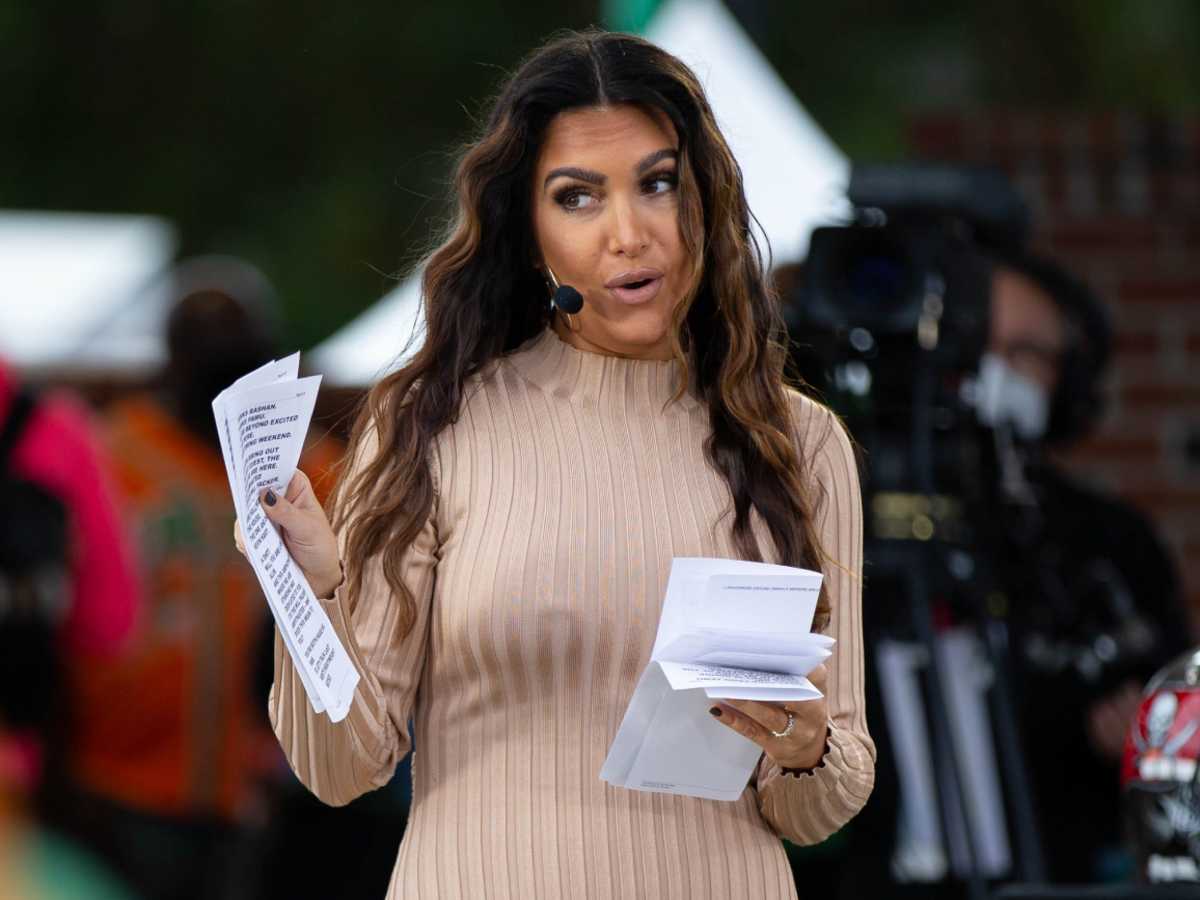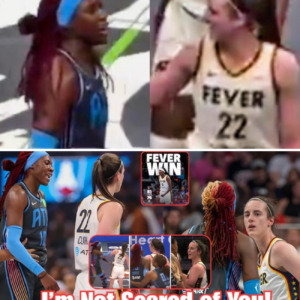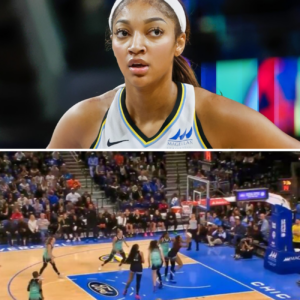Caitlin Clark, the remarkable Iowa Hawkeyes basketball player, has emerged as a force to be reckoned with in college basketball. Her stellar performances have not only captivated fans but also positioned her as one of the most discussed athletes in the sport today.

Clark’s extraordinary scoring ability, coupled with her leadership and brilliance on the court, has set her apart from her peers. However, her ascent to fame recently took an unexpected turn when she became the center of a controversial debate sparked by comments made by ESPN’s Molly Karam.
During a segment analyzing Clark’s latest performance, Karam made remarks that many perceived as disparaging. While her comments initially seemed benign, the way they were delivered provoked an outcry among fans and sports commentators.
Karam suggested that Clark’s playing style was flashy yet lacked the substance needed for success at the highest levels of competition. This critique was met with backlash, particularly since it came shortly after Clark had led her team to a significant victory, further fueling the outrage.

In the wake of Karam’s comments, social media erupted. Fans of Clark took to platforms like Twitter and Instagram to express their anger, branding Karam’s remarks as unjust and harmful to Clark’s achievements. The situation escalated, leading to trending hashtags that called for accountability and support for Clark.
Prominent figures in the sports world joined the conversation, defending Clark and highlighting the systemic issues female athletes face in terms of media portrayal and recognition.
The broader implications of Karam’s statements cannot be overlooked. Many commentators pointed out the unfair standards female athletes often endure, suggesting that they are subjected to harsher criticism compared to their male counterparts.
This discrepancy highlights a troubling trend in sports media, where confidence and assertiveness are lauded in male athletes but criticized in women. Karam’s comments thus became emblematic of a larger problem—the persistent undervaluation of women’s sports and the achievements of female athletes.
ESPN, recognizing the growing backlash, faced a challenging decision. Initially remaining silent, the network was eventually compelled to address the controversy publicly. In a brief statement, ESPN acknowledged that Karam’s comments had offended viewers and indicated that the matter was being taken seriously.
The pressure mounted for the network to respond decisively, as the outcry continued to swell among fans and advocates for women’s sports.

Ultimately, ESPN chose to part ways with Molly Karam, reaffirming its commitment to fostering an inclusive and respectful environment for all athletes.
This decision sparked a mixed reaction, yet it underscored the growing expectation for accountability in sports media, especially regarding the treatment of female athletes. Karam’s termination ignited a broader discussion about the need for responsible journalism in sports, especially as women’s sports gain visibility and popularity.
The fallout from this incident has prompted many to call for a reevaluation of how media outlets cover women’s sports. Despite the progress made in recent years regarding exposure and recognition for female athletes, incidents like this serve as reminders of the work that remains to be done. The media wields significant influence over public perception, and it carries the responsibility to provide fair and respectful coverage.
In the face of this controversy, Caitlin Clark has continued to shine. Her ability to remain focused on her performance amidst the noise of media scrutiny speaks volumes about her character and determination.
As she consistently delivers outstanding results on the court, Clark cements her status as a pioneer in women’s basketball. Her tenacity serves as an inspiration to aspiring athletes everywhere, illustrating that true achievement transcends words and criticism.
The ongoing dialogue surrounding the treatment of female athletes in the media is crucial. It not only affects the current landscape of women’s sports but also shapes the future for generations to come.
The incident involving Karam and Clark reflects a significant moment in the evolution of women’s sports coverage, emphasizing the need for balanced and fair analysis that celebrates athletes for their talents and accomplishments.
Caitlin Clark’s remarkable journey from high school prodigy to college superstar encapsulates the growing excitement and potential within women’s basketball. Her legacy will not only be defined by her accolades but also by the conversations she inspires about gender equality and representation in sports.
As the popularity of women’s athletics continues to rise, it is essential for media outlets to adapt and ensure that female athletes receive the recognition and respect they rightfully deserve.
News
SHOCKING: Kanye West was suspended from Instagram immediately after making rude comments about Trevor Noah, South Africans were outraged when they learned the truth…/hi
Kanye West suspended from Instagram after slur against Trevor Noah This article is more than 2 years old West used racial slur after Noah criticised his behaviour…
BREAKING NEWS: Trevor Noah did this for Jordyn Taylor while she was struggling with the pain of a great loss../hi
Trevor Noah strolls with new model girlfriend Jordyn Taylor, as her heartbreak after her fiancé was killed in a freak car accident is revealed Smitten Trevor Noah…
BOILING POINT: Caitlin Clark and Rhyne Howard in Explosive Confrontation as Benches Nearly Clear in Fever vs. Dream Drama!
Caitlin Clark, Rhyne Howard exchange words during Fever’s heated win against Dream Caitlin Clark was involved in another heated exchange Getty Images Caitlin Clark had a frustrating night…
Angel Reese Managed To Set Women’s Basketball Back A Quarter Century With The Most Embarrassing 15 Seconds In WNBA History
Angel Reese Managed To Set Women’s Basketball Back A Quarter Century With The Most Embarrassing 15 Seconds In WNBA History Angel Reese (Photo via Twitter) Basketball fans…
Caitlin Clark’s Short Skirt Had Folks On Social Media Saying All Sorts Of Things Ahead Of The Fever’s Game vs. The Dream
Caitlin Clark’s Short Skirt Had Folks On Social Media Saying All Sorts Of Things Ahead Of The Fever’s Game vs. The Dream Caitlin Clark (Photos via Yahoo…
AFTER CAITLIN CLARK WAS FLOORED, SOPHIE CUNNINGHAM EXPLODES: ‘ENOUGH IS ENOUGH!’ – Sparks Outrage as She Calls Out WNBA Vets for ‘Targeted Attacks’ and a League That Turns a Blind Eye!
WATCH: Caitlin Clark Drops to the Floor in Disbelief After Sophie Cunningham’s Impressive Half-Court Shot The Indiana Fever have made it known that they are hunting for…
End of content
No more pages to load









